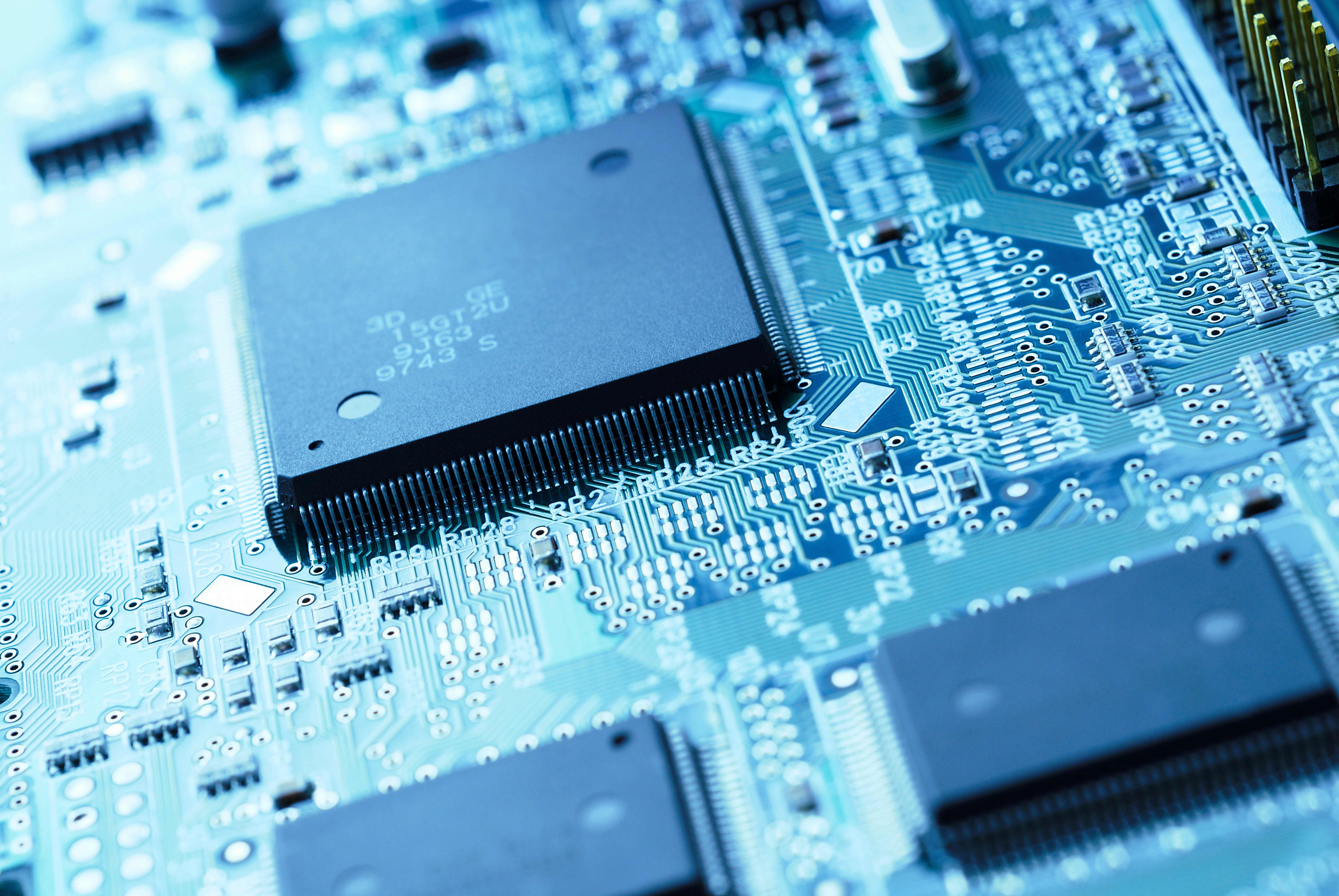
GUANGZHOU, China — China has been trying to ramp up its domestic semiconductor industry as the U.S. increases pressure on the country's technology giants.
But Beijing will face significant challenges strengthening its homegrown chip sector, analysts told CNBC.
Semiconductors are extremely important components of consumer electronics. As an increasing number of devices become "smart" and connected to the internet, they will become more and more crucial in new areas, such as automobiles. That's why China wants to be a powerful player.
However, China is also facing a situation where its companies' access to important chip components, as well as its domestic chipmakers' ability to procure technology to make those semiconductors, might be hampered.
"So without semiconductors, China cannot be a very meaningful technological power, and its own technology companies including a major company like Huawei may not necessarily be able to maintain operation if China does not have substantial capability to actually maintain and manufacture semiconductors," Dan Wang, technology analyst at Gavekal Dragonomics, a Beijing-based research firm, told CNBC's "Beyond the Valley" podcast.
The trade war has exposed China's reliance on foreign chips, the United States' central role to the supply chain, and ultimately how complicated that supply chain is.
Earlier this year, Washington amended a rule which requires foreign manufacturers using U.S. chipmaking equipment to get a license before selling semiconductors to Huawei. There is no indication that the U.S. will grant those licenses, either.
While Huawei, currently the world's largest smartphone maker, designs its own chips via a subsidiary called HiSilicon, those components are actually manufactured by Taiwanese firm TSMC. In the process, TSMC uses chipmaking gear that is made by American firms. So Huawei will be cut off from TSMC's chips after September 15 and has very few options globally to procure more, because of U.S. sanctions.
The U.S. government is also considering whether to add Semiconductor Manufacturing International Corp (SMIC), China's biggest contract chipmaker, to a blacklist known as the Entity List. That would restrict American firms exporting technology to the company. In effect, SMIC may not be able to get access to the gear it needs to make more advanced chips. Its technology is already several years behind TSMC and South Korea's Samsung Electronics.
Supply chain relies on US
The semiconductor industry has an extraordinarily complicated supply chain. It's not just about companies that manufacture the chips —there are also design companies involved, as well as firms that make tools that enable manufacturing in the first place.
Taiwan through TSMC and South Korea via Samsung are at the leading edge of manufacturing. When it comes to the tools for design, the United States dominates. Meanwhile, Dutch firm ASML makes a machine that uses so-called extreme ultraviolet (EUV) and is required to make the most advanced chips such as those manufactured by TSMC and Samsung. Reuters reported earlier this year that the U.S. pressured the Netherlands government to stop the sale of an ASML machine to SMIC. That shipment has not made it to China.
Last month, ASML told CNBC it was waiting for an export license from the Dutch government in order to ship its machinery to China.
The problem for China is its reliance on the foreign gear that is actually required to the do the end-to-end production of chips.
With the United States increasing pressure on China's technology sector, bringing its domestic chip industry on par with the U.S. will be a tough task for China.
"Without these tools, China is very far behind. And even when it had mostly unfettered access to the leading tools and materials on the market, China hasn't really been able to catch up," Wang said
"If the U.S. knocks out a lot of the ability of Chinese firms to actually have leading tools, then they're going to fall even further behind because they will need the rest of the industry to catch up before they can make very substantial progress again."
Tailwinds
It's not all doom and gloom for China's semiconductor sector. Over the long term, the country could catch the U.S. in chip manufacturing.
One factor potentially in China's favor is that it has a very big market, in terms of both a large population and a vast number of devices.
"China is a huge market … so serving China alone, that provides lots of opportunities for the domestic vendors given the fact that lots of the supplies right now are still coming from overseas," Sze Ho Ng, analyst at investment bank China Renaissance, told CNBC.
Also, the number of products with chips in them will certainly increase. Wang cited the so-called "internet of things," or devices such as traffic lights connected to the internet in ways that will make them better coordinated to control cities' automobile traffic. The chips in those don't necessarily need to be the most advanced chips, and that could become an area where Chinese firms dominate.
"A lot of these things do not need to be leading edge, iPhone-level processors in, say, a traffic light," Wang said. "A lot of trailing edge technology is good enough, and this is where Chinese firms are."
"industry" - Google News
September 14, 2020 at 09:00AM
https://ift.tt/3mlAjJu
China wants its semiconductor industry to catch up with the U.S. — but that won't be easy - CNBC
"industry" - Google News
https://ift.tt/2RrQtUH
https://ift.tt/2zJ3SAW
Bagikan Berita Ini














0 Response to "China wants its semiconductor industry to catch up with the U.S. — but that won't be easy - CNBC"
Post a Comment